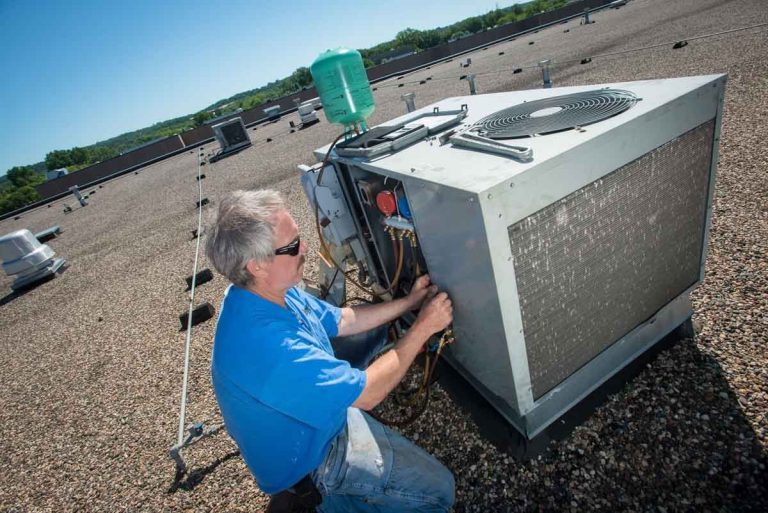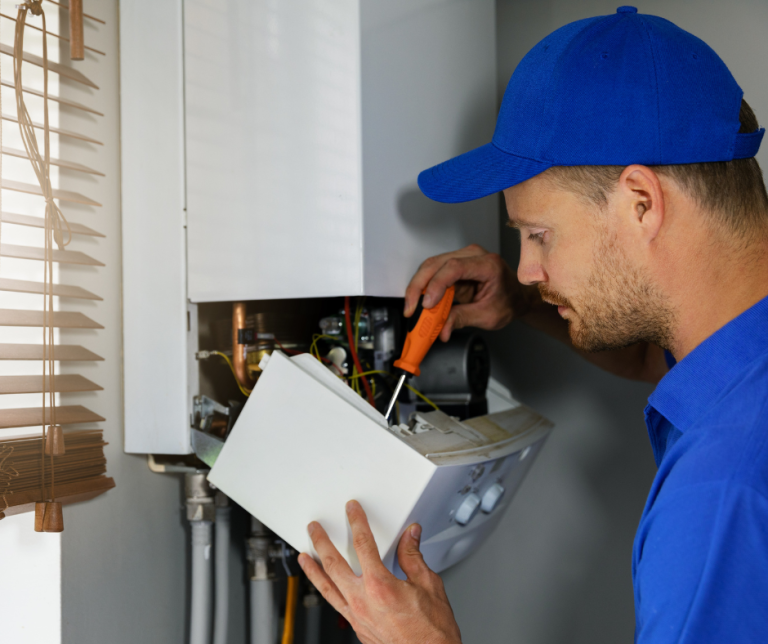Homeowners have had their heat on for a few weeks now, but we’re only at the start of the winter season, which means we’ve been getting calls about furnace issues or homeowners wanting to invest in a new system before the hard chill sets in. Now, it’s become the choice between two key options: a heat pump or a furnace.
Gas Furnace
A gas furnace uses combustible fuel—typically gas or propane—to generate heat. A furnace consists of four parts, which include: a burner that receives and burns the fuel, heat exchangers, a blower, and a flue that’s used as an exhaust. This is considered the traditional type of heating system, and it requires a natural gas set up that most homes have by now.
Pros include:
- They can overall produce warmer air than a heat pump because they use a heating method, which might be preferable in our cold climate.
- Since a furnace runs only half of the year, while a heat pump can be used year-round, it can have a longer lifespan.
- Some claim that furnaces are quieter than a heat pump because they don’t have a compressor that circulates refrigerant.
Cons include:
- That use of natural gas means it’s essential to have the proper warning detectors just in case there’s ever a leak.
- They are typically more expensive long-term than a heat pump in operation costs.
- The current price for natural gas is going up.
Heat Pump
A heat pump uses a thermodynamic system to draw warm air from the outdoors or ground and uses that to heat the home. It does not generate heat like a gas furnace but instead transfers that warm air to where it needs to be—in this case, your home. Even in below-freezing temps, this system can find warm air to move into your home. A geothermal option can also be used through refrigerant lines in the ground where it’s typically 40-50 degrees all winter.
Pros include:
- They can heat and cool your home. In the summer, a heat pump reverses that cycle and draws warm air from your home to deposit outside.
- Since the air doesn’t go through a heating process, it retains more humidity and won’t be as drying as furnace-heated air.
- A heat pump is more energy efficient and powered by electricity, so you don’t use a large amount of fuel consumption like a furnace would.
Cons include:
- The air might not be as hot as what a furnace could produce, which some homeowners might not like.
- Because they can be used year-round, their lifespan might not be as long as a furnace that’s only used in the cold months.
In terms of cost, it all depends on the type of unit you want and how your home is set up for these systems. We can go over all of the necessary estimates on system and installation cost, so you know exactly what to budget. Binder Heating and Air Conditioning has been serving the Twin Cities metro for over 90 years, and we are well-versed in installing all types of HVAC systems.





